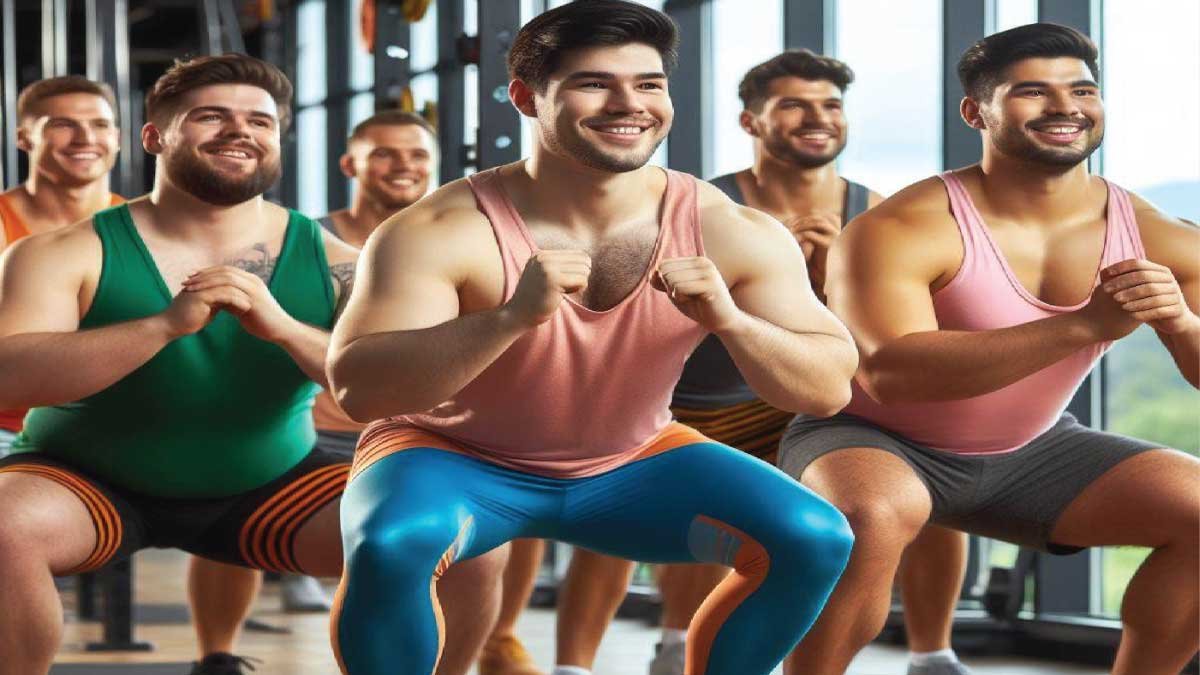Squats offer numerous benefits including enhanced muscle strength, improved mobility, boosted metabolism, increased bone density, elevated hormonal profile, better posture, enhanced athletic performance, cardiovascular health, mental well-being, and a sense of community and support.
In our quest for physical fitness and overall well-being, squats stand as a cornerstone exercise revered by fitness enthusiasts, athletes, and experts alike. Far beyond merely sculpting the lower body, squats offer a myriad of benefits that extend to various aspects of health, strength, and functionality. Join us as we delve deep into the remarkable benefits of incorporating squats into your fitness regimen.
Enhances Muscle Strength and Mass
Squats are renowned for their unparalleled ability to bolster muscle strength and mass. This compound exercise targets multiple muscle groups simultaneously, including the quadriceps, hamstrings, glutes, and lower back muscles. As you perform squats, these muscles are engaged in a coordinated effort, leading to significant gains in strength and size over time.
Improves Functional Strength and Mobility
Functional strength, vital for performing daily activities with ease and efficiency, is greatly enhanced through regular squatting. By mimicking movements essential for daily tasks such as bending, lifting, and carrying, squats contribute to improved mobility, balance, and coordination. This functional carryover translates into a more robust and agile physique capable of navigating life’s challenges effortlessly.
Boosts Metabolic Rate and Fat Loss
Engaging in squats stimulates the body’s metabolic rate, igniting a cascade of physiological processes that facilitate fat loss and weight management. As a compound, multi-joint exercise, squats activate numerous large muscle groups, resulting in a greater calorie burn both during and after the workout. This elevated metabolic rate persists post-exercise, fostering ongoing fat oxidation and metabolic efficiency.
Enhances Bone Density and Joint Health
Maintaining optimal bone density and joint health is paramount for longevity and quality of life. Squats, classified as a weight-bearing exercise, exert mechanical stress on bones and joints, prompting the body to fortify skeletal structures through increased bone mineral density. Furthermore, squatting promotes the secretion of synovial fluid, lubricating the joints and reducing the risk of degenerative conditions such as osteoarthritis.
Elevates Hormonal Profile
The performance of squats triggers the release of anabolic hormones such as testosterone and growth hormone, instrumental in muscle growth, repair, and overall vitality. This hormonal surge not only fosters muscular development but also contributes to enhanced mood, cognitive function, and libido. By incorporating squats into your fitness routine, you harness the power of hormones to optimize physical and mental well-being.
Enhances Posture and Core Stability
A strong, stable core and proper posture form the foundation of functional movement and injury prevention. Squats, particularly when executed with correct form, strengthen the muscles of the core, lower back, and pelvic floor, fostering optimal alignment and stability. By reinforcing muscular imbalances and promoting spinal integrity, squats help mitigate the risk of postural deviations and associated discomfort.
Increases Athletic Performance
Athletes across various disciplines recognize the unparalleled benefits of squats in enhancing athletic performance. By improving strength, power, and explosiveness, squats elevate athletic prowess, enabling athletes to sprint faster, jump higher, and exert greater force. Additionally, the functional nature of squats translates directly to sports-specific movements, enhancing agility, coordination, and resilience on the field or court.
Enhances Cardiovascular Health
While often regarded as a strength-training exercise, squats also confer significant cardiovascular benefits. Performing squats elevates heart rate and promotes circulation, stimulating cardiovascular adaptation and endurance. Furthermore, the integration of squats into high-intensity interval training HIIT routines amplifies cardiovascular conditioning, fostering heart health and overall cardiovascular resilience.
Promotes Mental Well-being
Physical exercise, including squats, exerts a profound influence on mental well-being, alleviating stress, anxiety, and depression. The release of endorphins, commonly referred to as “feel-good” hormones, during and after squatting sessions induces a state of euphoria and relaxation, enhancing mood and cognitive function. Moreover, the sense of accomplishment and empowerment derived from mastering squatting techniques enhances self-esteem and confidence, contributing to holistic well-being.
Cultivates a Sense of Community and Support
The journey of fitness and self-improvement is often enriched through shared experiences and mutual support. Engaging in squats within a community or with a workout partner fosters camaraderie, accountability, and motivation. Whether in a gym setting, group fitness class, or virtual community, the collective pursuit of fitness goals creates a supportive environment conducive to growth and achievement.
Conclusion About Squats Benefits:
In conclusion, squats transcend their reputation as a leg exercise, offering a multitude of benefits that span physical, mental, and emotional realms. From enhancing muscle strength and metabolic function to promoting cardiovascular health and mental well-being, the impact of squats extends far beyond the confines of the gym. By incorporating squats into your fitness routine, you embark on a transformative journey toward a stronger, healthier, and more vibrant life.
FAQs:
What muscles do squats work?
Squats primarily target the quadriceps, hamstrings, and glutes, while also engaging muscles in the lower back, core, and calves.
How many squats should I do each day?
The number of squats you should do daily depends on your fitness level and goals. Beginners may start with 3 sets of 10-15 reps, gradually increasing as strength improves.
Are squats bad for your knees?
When performed with proper form, squats are not inherently bad for your knees. In fact, they can strengthen the muscles around the knee joint, reducing the risk of injury.
Can I do squats if I have back pain?
Squats can be beneficial for individuals with back pain when performed correctly. It’s essential to consult with a healthcare professional or fitness expert to determine the appropriate modifications and ensure proper form.
Can squats help me lose belly fat?
While squats contribute to overall fat loss by boosting metabolism and increasing muscle mass, spot reduction of belly fat is not possible. However, incorporating squats into a comprehensive fitness regimen can aid in achieving a leaner physique overall.

